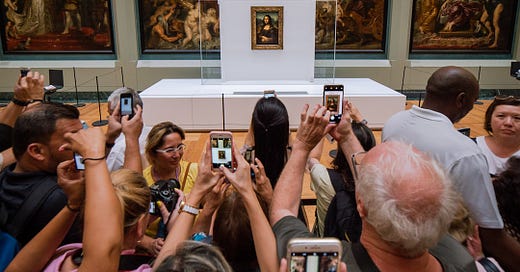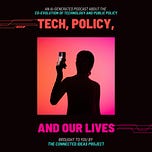When I came across Flagship Pioneering’s 2025 annual letter, authored by Noubar Afeyan, the concept of “polyintelligence” struck me as not just timely, but foundational. In this space—where The Connected Ideas Project (TCIP) lives and grows—we’re continually asking how technology and policy converge to shape the future. Afeyan’s vision of polyintelligence, a fusion of human, machine, and nature’s intelligences, is a perspective worth weaving into our shared exploration.

The term itself evokes Leonardo da Vinci, an iconic symbol of interdisciplinary mastery. Leonardo’s ability to observe, synthesize, and innovate across domains serves as a timeless model for how to approach today’s challenges. Polyintelligence is, in many ways, a modern extension of his legacy—a Renaissance reimagined for the age of artificial intelligence and biotechnology. It asks us to think beyond silos, to see intelligence as interconnected, emergent, and profoundly collaborative.
This resonates deeply with TCIP’s ethos. At its core, this project is about understanding and embracing the co-evolution of technology and policy, but not in isolation. Instead, we aim to explore how disciplines, ideas, and values can intersect to create something greater than their individual parts. The notion of polyintelligence aligns perfectly with this vision, encouraging us to rethink intelligence itself as a networked phenomenon—one that spans not only people and machines but ecosystems and societies.
Learning From Nature’s Playbook
Afeyan emphasizes that nature has been perfecting intelligence for billions of years, encoding it into DNA and ecosystems through adaptation and evolution. In the biotech world—where my career began—we see daily reminders of this principle. Nature doesn’t separate creativity from function; it innovates by integrating them. Polyintelligence embraces this approach by combining human creativity, machine precision, and nature’s deep reservoir of adaptive strategies.
This triad is particularly exciting when applied to biotechnology. As Afeyan mentions, Flagship is using AI to uncover new insights into “junk DNA,” revealing hidden layers of biological intelligence that were once overlooked. It’s a reminder that intelligence doesn’t have to fit our preconceptions to be profound. This lesson extends beyond biology into AI, public policy, and even personal life: if we’re open to it, intelligence can emerge from unexpected places.

Mistakes, Feedback, and Progress
One of the most compelling ideas in the letter is that intelligence, whether in nature or machines, is fundamentally about learning. It’s not about avoiding mistakes but learning from them. Nature’s experiments are messy and iterative—some lead to stunning adaptations, others to dead ends. Machine learning operates similarly, refining its models through trial and error.
This principle resonates with one of my core philosophies: there’s no such thing as failure, only “not-yet success.” Whether we’re designing AI systems, crafting policies, or navigating our own lives, progress often comes from embracing uncertainty and experimentation. Polyintelligence, in its very structure, demands this iterative, adaptive mindset. It’s a philosophy of growth—one that fits seamlessly with TCIP’s commitment to pushing boundaries while staying grounded.
Policy, Technology, and a Polyintelligent Future
At TCIP, we’re not just interested in how technologies work; we’re focused on how they shape and are shaped by policy. Afeyan touches on this when he warns that the choices we make about AI governance today will ripple outward, influencing the trajectory of polyintelligent systems. This isn’t just a technical challenge; it’s an ethical and philosophical one.
What kind of future are we building when we merge human, machine, and nature’s intelligences? What trade-offs are we willing to accept, and what values must guide us? These are questions that we, as a community, must grapple with—not just as technologists or policymakers, but as humans. TCIP is a space for that dialogue, where perspectives collide and, ideally, converge into actionable insights.

Expanding the Conversation
The beauty of polyintelligence is that it’s inherently inclusive. It invites us to explore how diverse forms of intelligence—be they human, animal, or artificial—can collaborate. This aligns with TCIP’s mission to bridge work and play, intellect and intuition, professional pursuits and personal adventures. It’s a call to expand not only how we think but who we include in the conversation.
As Afeyan writes, we’ve been too narrow in our definitions of intelligence. By embracing polyintelligence, we’re not just expanding our understanding of what’s possible; we’re reimagining what it means to be connected—across disciplines, species, and technologies. It’s a perspective that TCIP will continue to explore, because the future isn’t just about more intelligent machines or policies. It’s about creating systems that are resilient, adaptive, and deeply human.
So here’s my challenge to you: How can we embrace polyintelligence in our own lives and work? How can we think beyond silos, beyond binaries, to build something truly interconnected? Let’s keep pushing boundaries—and stay connected. The journey is just beginning.
Cheers,
-Titus
The podcast audio was AI-generated using Google’s NotebookLM













Share this post